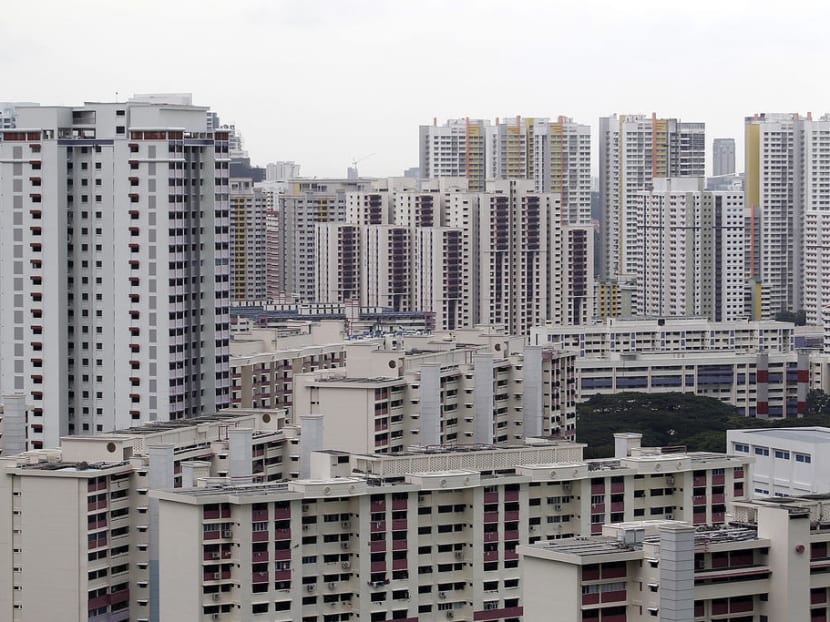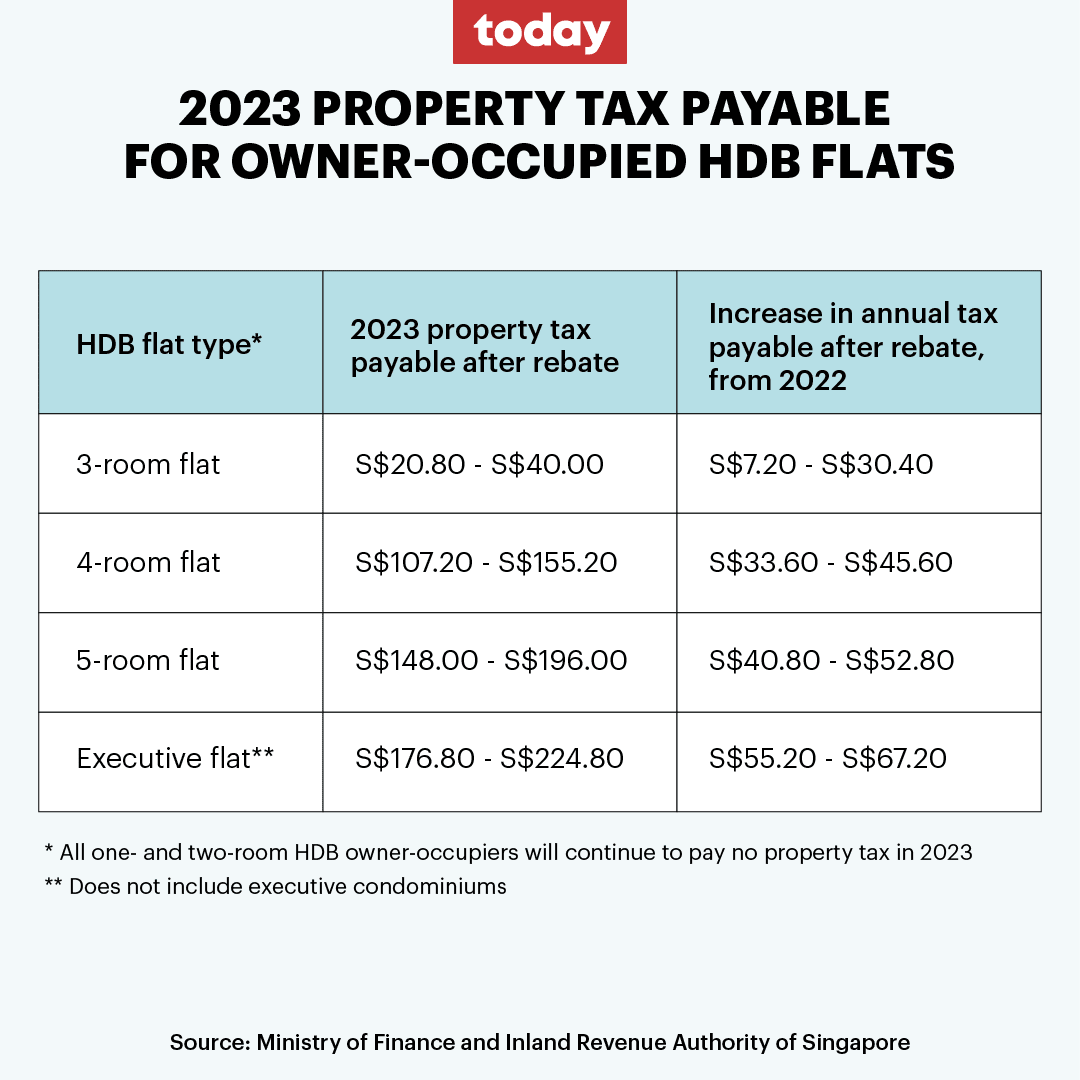Most residential properties to incur higher tax from Jan 1, 2023, offset by one-off tax rebate of up to S$60
SINGAPORE — Most residential properties, including private homes and Housing and Development Board (HDB) flats, will have their annual values raised from Jan 1 next year to reflect the rise in rents.

SINGAPORE — Most homeowners of Housing and Development Board (HDB) flats and private properties will pay higher property taxes from Jan 1 next year following a revision of annual values to reflect the rise in rents.
To mitigate the higher tax, the Government will provide a one-off 60 per cent property tax rebate for all owner-occupied properties, up to a cap of S$60, the Ministry of Finance and the Inland Revenue Authority of Singapore (Iras) said in a joint statement on Friday (Dec 2).
All owner-occupiers of one- and two-room HDB flats will continue to pay no property tax since their revised annual values will remain below S$8,000.
After taking the rebate into account, most owner-occupiers in other HDB flat types will pay between S$30 and S$70 more in property tax in 2023, the authorities said.
The rebate will be automatically offset against any property tax payable in 2023.

Property taxes are derived by multiplying the property tax rate with the property’s annual value, which is the estimated annual rent of the property if it were to be leased.
“Since the last revision of annual values on Jan 1, 2022, market rents of HDB flats and private residential properties have risen by more than 20 per cent,” the authorities said. “Residential property annual values will be revised accordingly from Jan 1, 2023 to reflect this.”
Properties occupied by their homeowners are taxed at lower rates. Homeowners who do not occupy their property — such as a second home or an investment property — are charged at higher rates.
Social support schemes that use a property’s annual value to determine a person’s eligibility, such as the goods and services tax voucher scheme and Workfare Income Supplement scheme, will not be affected by the latest revision, the authorities said.
This is because government agencies will use a home’s 2022 annual value to determine whether someone is eligible for a social support scheme in 2023.
Property owners will receive their tax bills by end-December this year, which will have to be paid by Jan 31 next year.
Those facing financial difficulties may contact Iras for assistance to discuss a suitable payment plan before Jan 31.
They may appeal for a longer payment plan via the Apply for Payment Plan e-service on the Iras’ myTax portal or contact Iras at 1800 356 8300 for assistance.
From Jan 1 next year, the first of two property tax rate hikes aimed at raising taxes for high earners will also kick in.
For owner-occupied residential properties, the hikes — to be introduced in 2023 and 2024 — will affect those with annual values of more than S$30,000, which make up the top 7 per cent of all owner-occupied housing units.








